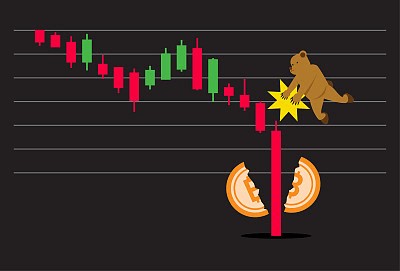时间:2024-04-12|浏览:363

用戶喜愛的交易所

已有账号登陆后会弹出下载
原文标题:Nine crypto VCs on why Q1 investments were so hot and how it compares to previous bull market
Original author: Jacquelyn Melinek, TechCrunch reporter
Original translation: Luffy, Foresight News
Tom Schmidt, partner at Dragonfly Capital, told TechCrunch that if the cryptocurrency venture capital landscape in 2023 is a pot of cold water, then the first quarter of 2024 is when the bubble begins to form before the water boils.
He’s not wrong: According to PitchBook, $2.52 billion was raised in the cryptocurrency and blockchain space in the first quarter of 2024. That’s about 25% higher than the $2.02 billion raised in the fourth quarter of 2023.
“It’s an incredibly busy time right now, and it feels like 2021,” said David Nage, portfolio manager at Arca. “The feeling in 2021 was like having a gun to the back of your head and you had to do it, and this is coming back.” Nage said his firm tracked more than 690 financings across stages in the first quarter, which is about 30% to 40% higher than the low point in 2023.
Alex Felix, co-founder and chief investment officer of CoinFund, said: "In the first quarter, the financing outlook for crypto venture capital was cautiously optimistic, and companies have escaped the financing difficulties of the previous two years."
Felix added that despite a significant year-over-year decline in venture capital and cryptocurrency funding in 2023 (around 65%), there was a clear increase in deal activity.
Why the resurgence now?
The crypto venture capital market is heating up partly due to the positive impact of last year's Ripple and Grayscale litigation victories and positive sentiment towards DeFi on Solana. In addition, demand for Bitcoin is also increasing after the SEC approved a spot Bitcoin ETF.
“Another thing that’s affecting the market is that we’re still alive,” Nage said. “I know it’s funny to say that, but after the LUNA, BlockFi, FTX collapse and the banking crisis, people thought we were going to die, but we’re not.”
Combined with the macroeconomic background, this trend of cryptocurrency may not stop soon. Mike Giampapa, general partner of Galaxy Ventures, said: "Against the favorable macro background such as the launch of cryptocurrency ETF products, Bitcoin halving, and expected interest rate cuts before the US presidential election, cryptocurrency investment will continue to heat up." "We are also seeing that institutional interest in cryptocurrency is beginning to turn into actual action."
For example, BlackRock is launching a tokenized money market fund on the Ethereum blockchain, which could increase competitive pressure on traditional financial institutions and lead to greater adoption.
Where deals are pouring in
Overall, funding for crypto startups in multiple areas, from DeFi to SocialFi to Bitcoin L2, is picking up. “We’re seeing 30 to 40 deals per week, which is up 10% to 20% from the previous quarter,” Nage said.
Giampapa said there has been an increase in both new companies and older companies that have been underperforming during the bear market and are starting to raise money again. “The 2024 market will be a story of the ‘haves’ and the ‘have-nots’, with new companies developing according to the popular narrative and getting funded at high valuations, while many other companies will fail,” he added.
Currently, SocialFi, which mainly refers to decentralized social media in the Web3 world, is very popular. Bi.social recently completed a $3 million round of financing, and decentralized social network protocol Mask Network's fund raised $100 million to further support other similar applications. Some of the success in this field can be attributed to decentralized social application networks such as Farcaster, which are using Web 2.0 technology to attract new audiences. Web3 games are also expanding rapidly, with hundreds of new games expected to be launched later this year.
Cryptocurrency, along with artificial intelligence, blockchain and anything to do with zero-knowledge “is all hot right now,” Schmidt said.
“Given the huge expectations about AI’s potential to impact the global economy, we expect this trend to continue for the foreseeable future,” said Tekin Salimi, founder of dao5.
For example, modular and AI-integrated blockchains, such as 0G Labs, which raised $35 million in a seed round, have also attracted the attention of venture capitalists.
Founder-friendly marketplace
Salimi said competition among venture capital firms is creating an environment that gives founders more leverage in funding negotiations. “There’s been no shortage of greedy capital lately,” said Michael Anderson, co-founder of Framework Ventures.
“It’s good for founders because investors are now selling their value in an oversubscribed round,” said Marthe Naudts, partner at White Star Capital’s digital asset fund. This means some investors have to show founders why they should choose them. “Founders now have the option and the ability to set the terms.”
But Felix said there has not really been a shift in power from investors to founders, but rather a “perfect balance” between the two sides. “Founders benefit from more tighter funding rounds and slightly higher valuations from their recent lows, while VCs get more protection and more favorable deal structures.”
Notably, there are huge differences in valuations based on the quality of the team and industry, Schmidt said. Some startups that successfully raised money in the last market cycle are re-pricing through price cuts or extended rounds, while others are newcomers.
Schmidt pointed out that before the seed round, the valuation of projects in the cryptocurrency consumer sector is usually less than $10 million, but the valuation of industries such as cryptocurrency and artificial intelligence can reach $300 million or even higher. For example, according to Messari data, AI prediction market PredX raised $500,000 and its post-investment valuation is $20 million. In addition, Web3 AI social network CharacterX raised $2.8 million in seed round financing, with a post-investment valuation of $30 million.
For seed rounds, Nage expects pre-money valuations of $25 million to $40 million, with several startups seeing seed rounds valued at $80 million. Schmidt said the average seed round valuation is between $30 million and $60 million.
“Valuations have gone up dramatically, and even with larger, more established companies that have raised money, founders still have a lot of options,” Anderson said. “Given how early we are in this cycle, some of the valuations we’re seeing are a little outrageous.”
Schmidt said that because financing announcements are typically released months to a year after the actual financing, market participants will misunderstand the latest private market conditions if they judge the state of the private market based solely on news headlines.
“Last year, even for high-quality teams, it took months or nothing to raise money, but now it’s happening in weeks or less, and founders are getting better terms,” Schmidt said. “Teams that wasted time and money during the bear market are still raising bridge rounds, but new teams are able to start strong with larger rounds and higher valuations.”
The valuation shift is also driven by sentiment in the cryptocurrency market, so with Bitcoin hitting all-time highs, Solana breaking $200, and Ethereum approaching $4,000, this is a “huge sentiment shift,” Nage said.
Seed rounds are still the easiest for founders to raise, as many small funds and angel investors are willing to sign the first check with minimal barriers, Felix said. "However, I don't expect an immediate improvement in the Series A round completion rate, which has dropped from more than 20% to around 15%. Raising more than $10 million in financing will still be a fairly challenging task."
Many venture capitalists are still trying to avoid the trap of high valuations due to excessive hype, while also realizing that they can’t just sit back and wait for the company to make a profit. “It’s quite common for a round to be oversubscribed within a few days, and for investments to be rejected or moved to subsequent rounds with higher valuations,” said Thomas Tang, vice president of investments at Ryze Labs.
The token economy is making a comeback
Nage said that since late 2023, he has been hearing from companies and peers that they are working on token economic designs for 2024. As a result, there has been a new surge in token issuance, and many of Arca’s portfolio companies are working to achieve this year. He added that this is different from the era after the Terra/LUNA crash in mid-2022, when most seed rounds were financed through simple agreements for future equity (SAFEs) or warrants.
“The phase of new token issuance that we’re about to enter is where valuations are going to shift dramatically,” Nage said.
Tang said this dynamic has prompted venture capital firms to accept “high valuations in private rounds because they expect the tokens to rise sharply when they are publicly traded.”
That doesn’t mean there won’t be any more SAFE rounds, Schmidt said the market has moved around priced equity rounds and token structures “as a way to protect investors while also providing flexibility to teams.”









